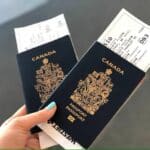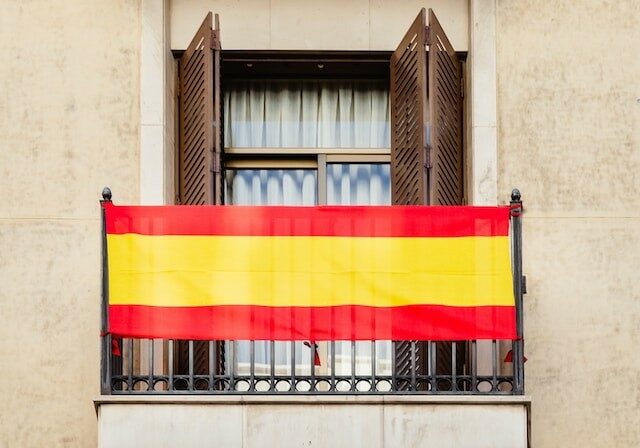
Spanish citizenship by descent lets you connect with your ancestral roots if one of your parents is Spanish. You can also make a claim if your parents were both born in Spain, you were adopted by a Spaniard before you turned 18 years old, you have grandparents who are Spanish or you are a Latin American with a grandparent born in Spain.
This is because the Spanish law on nationality predominantly grants citizenship through jus sanguinis (a Spanish ancestor) and, in specific cases, through jus soli (when a child is born on Spanish soil).
Obtaining Spanish citizenship by descent is a nationality process through which those with at least one parent or grandparent who has or was a Spanish citizen by birth can obtain Spanish nationality. It’s not merely about tracing your roots to Spanish ancestry; you’re eligible to become a Spanish national if you have a parent or grandparents who the government recognizes as Spanish citizens.
This article will look at eligibility criteria, required documents, and how to apply for a Spanish passport through citizenship by descent. We’ll also provide some alternative paths to citizenship. Have a look below to learn more.
Spanish Citizenship by Descent Eligibility Criteria

For example, a foreign national with a Spanish mother or a Spanish grandfather can apply for citizenship at a Spanish Central Civil Registry (Registro Civil) if they live in Spain or a foreign civil registry, such as their nearest Spanish Consulate.
Alternatively, you can submit applications for Spanish citizenship by ancestry online if you have a legal representative at the Central Civil Registry or Spanish Consulate, where they hold legal residence.
To apply for Spanish citizenship by descent, you must gather documentation proving your lineage to a Spanish citizen parent or grandparent. This typically involves obtaining birth, death, and marriage certificates from a Spanish Civil Registry, illustrating your familial ties.
The type of legal documentation and application process will vary slightly depending on your relative and the lineage path.
Independent of the reason to apply for the citizenship, the applicant needs to comply with the following requirements:
- Oath or promise of fidelity to the King and obedience to the Constitution and the laws.
- Declaration of renunciation of the previous nationality. Nationals of Ibero-American countries, Andorra, the Philippines, Equatorial Guinea and Portugal will not meet this requirement, nor will Sephardim originating in Spain.
- Registration of the acquisition of nationality in the Spanish Civil Registry.
How to get Spanish Citizenship by Descent: Two Routes
Spanish citizenship through parents
If you’re seeking Spanish citizenship and one or both of your parents are Spanish citizens, the Spanish citizenship application process requires you to present specific documents. Here is the process you need to follow:
- Make an appointment with your local Spanish Embassy, Consulate, or Civil Registry Office – providing your name and phone number.
- Collect the necessary identity documents, including:
- An original birth certificate issued within the last 6 months
- A certified copy of your passport or another valid picture ID document
- A complete birth certificate of the Spanish national parent (if you don’t have these, you should provide the full name and date of birth of the Spanish parent(s) to allow the Embassy or Consulate to locate the respective Spanish birth certificate.) If the applicant is a minor, certified copy of the parent’s passport.
- Birth certificates for both parents independent of their nationality and issued within the last 6 months, or a death certificate.
- If applicable, an original or certified copy of your parents’ marriage certificate. If not applicable, for minors, a document from the absent or divorced parent authorizing the application for the citizenship.
- Proof of address

Note: If you’re a minor (under 18), your parents must apply for Spanish citizenship by descent on your behalf.
All foreign documents must be apostilled and translated into Spanish.
For applications under the specific cases regulated by the Law 20/2022, of October 19th there will be additional documents required such as:
Documents accrediting the exiled status of the Spanish father or mother, grandfather or grandmother:
- Having been a beneficiary of a pension granted by the Spanish Administration to exiles.
- Having suffered situations of repression or political persecution: certifications or reports issued by public or private entities or institutions, duly recognized by the Spanish authorities or the Host state related to exile.
- Any other document
Spanish citizenship through grandparents
If you have a grandparent born in Spain or who was granted Spanish citizenship at birth, you are also eligible to apply for Spanish citizenship and a Spanish passport. The eligibility criteria require you to prove your lineage, just as you would through a Spanish mother or father.
Eligibility may also be gained by grandchildren of Spanish women who were born in Spain and married non-Spanish individuals before the 1978 Constitution and lost their Citizenship in Spain due to the marriage that took place after the law came into force.
To meet the requirements for Spanish citizenship by descent through a Spanish grandparent, you must demonstrate strong connections to the country, including a basic language test proving your ability to speak Spanish.
The Required Documents to Request Spanish Nationality

Below is a comprehensive list of the official documents you generally need to apply for Spanish citizenship by descent:
- Official application form: The first document you’ll need is an official application form for citizenship. The applicant or their legal representative must fill out this form, and it should contain all relevant identification information.
- Birth certificate: You’ll need to provide an original copy of your birth certificate issued within the last three months. You will need to provide a complete birth certificate.
- Copy of the Spanish ancestor’s ID: The next set of documents you’ll need are copies of your parent(s) or grandparent(s) ID. If you’re applying for citizenship through a parent, you must provide their Spanish ID.
- Certified copy of the grandparent’s marriage certificate: If you’re applying for Spanish citizenship through a grandparent, you’ll need to provide an original copy of your grandparent’s marriage certificate, when applicable.
- Complete birth certificate of your parents or grandparents, apostilled and issued within 1 year.
- Valid ID: A certified copy of your passport or ID is also necessary. This serves as proof of your identity and can also demonstrate ties to your country of citizenship or residence.
- Birth certificate linking the father or mother with the grandfather or grandmother, if applicable.
- Proof of affairs with Spain: A Spanish citizenship test may be requested to verify ties with Spain, which can be done through a Spanish language exam to prove language proficiency. The proof may need to be more exhaustive in citizenship cases for grandchildren.
Remember, the required documents may vary depending on the specifics of your Spanish heritage. You are encouraged to contact the nearest Spanish Embassy or Consulate for the most accurate information regarding your case. Ensure all documents are legally certified and translated into Spanish.
Please note that any foreign document must be legalized beforehand, either with the Apostille of the Hague Convention or by the Spanish Embassy and Ministry of Foreign Affairs in the country where the document was issued. If the document is not in Spanish, a translation by a certified translator recognized by the Spanish Consulate is mandatory.
Spanish Citizenship Application Processing Time
Applications for Spanish citizenship by descent can take a few months for the children of Spanish nationals and up to a couple of years for those applying through a grandparent born in Spain. Due diligence and processes for verifying and confirming all the information provided determine the total duration.
Who can request Spanish nationality?
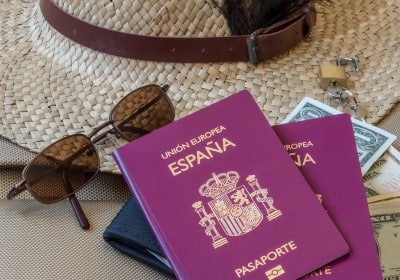
- Original assignment, recognized at the time of birth
- Acquisition, which is valid from the date of registration.
As per the Spanish Nationality Law 20/2022, citizenship can be acquired either by right of blood (jus sanguinis) derived from a Spanish ancestor or by birth on Spanish soil. In both cases, the recipients are considered Spanish by origin.
The Spanish constitution allows individuals who had a natural-born Spanish national parent at the time of their birth to apply for Spanish citizenship by descent.
There are numerous examples under which jus sanguinis, and jus soli apply, including:
- Children born in Spain to a Spanish father or mother
- Children born abroad to a Spanish parent born in Spain
- Children adopted by a Spanish national before their 18th birthday
- Children born abroad with at least one grandparent who was born in Spain or who acquired Spanish citizenship at birth
If you have one Spanish parent who obtained citizenship by naturalization, you will not qualify for Spanish citizenship by descent. If you were born in Spain to foreign parents, you would only be eligible for citizenship if your parents’ country of citizenship declined to grant you citizenship.
It’s important to note that Spanish citizenship can be obtained through ancestry (such as having a Spanish parent or Spanish-born grandparent) or through parents and grandparents who are non-Spanish citizens if you were born in Spain.
According to Spanish immigration law, demonstrating legitimate connections with the national community is essential. This requires recognition by Spanish authorities of the relevance of these connections, such as proficiency in the Spanish language and a regular presence in Spanish territory.
It is also contingent on no final sentence conviction for committing a crime punishable by a significant prison term.
Spanish citizenship for Sephardic Jews
The Spanish government recognizes the historical connection between the country and Sephardic Jews who were expelled during the Inquisition in the 15th century. In a bid to make amends for this historical wrongdoing, Spain has enacted laws allowing Jews of Sephardic ancestry to apply for Spanish citizenship by descent.
Sephardic Jews descend from the ancient Jews and traditional Jewish communities of the Iberian Peninsula (modern Spain and Portugal). The law applies not only to people who currently practice Judaism but also to those who can prove a traditional Sephardic cultural connection, such as having a family history of using the Judaeo-Spanish (Ladino) language.
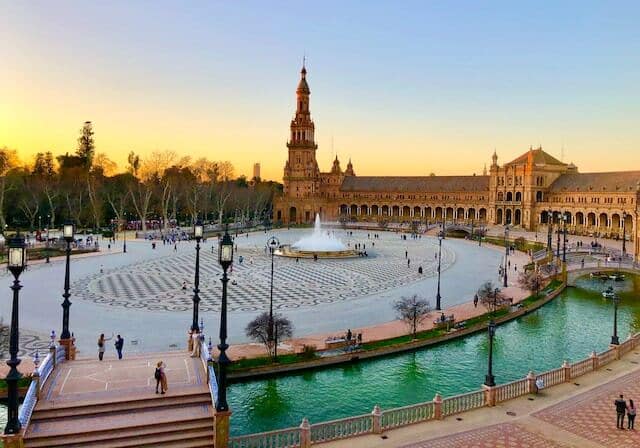
- Proof of Sephardic heritage: The first step is to provide evidence of your Sephardic origin. This could be through genealogical records, a common Sephardic surname, or proof that your family traditionally used Ladino.
- Certification from a Spanish Jewish community: The next step involves obtaining a certificate issued by the President of the Permanent Commission of the Federation of Jewish Communities of Spain, issued by the president or similar position of the Jewish community of the area of residence or hometown of the interested party, or from the competent rabbinical authority, legally recognized in the country of the applicant’s habitual residence.
- Submission of application: After obtaining the certificate, you can then submit your citizenship application, which will include your certification and proof of Sephardic Jewish ancestry, along with other necessary documents such as your birth certificate and ID.
- Review process: The Spanish government will then review your application. This process may take several months to a few years as the government thoroughly checks all provided information and documents.
- Approval: If your application is approved, you will be granted Spanish citizenship.
It’s important to note that while the Spanish constitution permits citizenship by descent through Sephardic origin, the process can be complex and often requires expert assistance. You may need the support of a professional well-versed in Spanish immigration and citizenship laws to navigate the process effectively.
Global Citizens Solutions is a renowned migration consultancy firm that provides expert guidance for individuals seeking Spanish citizenship by descent. With a team of experienced migration specialists, we can streamline the application process, handling Spanish bureaucracy and ensuring that all necessary documentation is prepared accurately.
Remember, obtaining Spanish citizenship will not only give you the rights and benefits of being a Spanish national but will grant EU citizenship rights, allowing you to live, work, and move freely within the European Union’s member states.
Other Ways to Obtain Spanish Citizenship
If you don’t hold a claim to Spanish citizenship by descent, there are alternative routes to Spanish citizenship.
 Naturalization
Naturalization
Spanish citizenship by naturalization is when a foreign national becomes a Spanish citizen after residing in Spain for a specified period, generally through legal residency acquired through work permits or family reunification.
The naturalization period typically requires ten years of residency and citizenship exams, including a Spanish proficiency test and a test to prove knowledge of Spanish culture and customs.
Under Spanish citizenship law, citizens of certain European countries, Latin American countries, and other former Spanish colonies, such as Equatorial Guinea, can apply for citizenship by naturalization after two years of residency.
 Marriage
Marriage
Marriage to a Spanish citizen offers a simplified and fast-tracked path to naturalization. After your marriage is registered at a Civil Registry in Spain and you obtain Spanish residency, you’re eligible to receive Spanish citizenship after one year of residency. This residence must be legal, continuous and previous to the application.
 Investment
Investment
Spain doesn’t offer a direct route to obtain citizenship by investment. However, the Spain Golden Visa program presents a viable path to eventually gaining Spanish citizenship by naturalization. A €500,000 investment through investment options such as purchasing Spanish real estate will qualify investors to obtain a Spanish residence permit under the Golden Visa.
The initial visa is valid for three years and can be renewed every five years, provided the investment is maintained. After five years of residency, Golden Visa holders can apply for permanent residency. Spain’s naturalization law requires an additional five years of residence to be eligible to apply for citizenship.
Can you hold dual citizenship in Spain?
Dual citizenship is a complex matter in Spain as the Spanish government doesn’t provide the universal right to dual citizenship for new citizens. Whether or not you can obtain Spanish citizenship and keep your original citizenship depends on your nationality. To learn more, make sure to read our guide to the Pros and Cons of Dual Citizenship.
Only nationals of Ibero-American countries, the Philippines, Andorra, Equatorial Guinea, Portugal, and France, can hold dual citizenship in Spain. Citizens of other countries are required to renounce their citizenship before they can obtain citizenship in Spain. Here’s the complete list of all the countries that allow dual citizenship.
How to Get a Spanish Passport
After a successful Spanish citizenship by descent application, the next step is to apply for your Spanish passport. This travel document verifies your Spanish citizen status and grants you the freedom to move within the European Union and other countries worldwide. Here’s a step-by-step guide to obtaining a Spanish passport:
- Eligibility: Ensure you have your Spanish citizenship certificate as proof of citizenship. This would be required when applying for a passport.
- Schedule an appointment: Contact the nearest Spanish Consulate in your country of residence or an official passport office in Spain. You’ll need to book an appointment for your passport application.
- Prepare the necessary documents: Gather all the necessary documents. This typically includes your citizenship certificate, a national ID card (DNI), and a completed passport application form. The exact documents may vary depending on your location.
- Attend the appointment: Attend the appointment in person. Here, you’ll submit your application and the necessary documents. You will also need to provide biometric data (like fingerprints and photographs).
- Payment of fees: Pay the required application fee for the passport application. The fee can be paid at the Embassy or passport office in Spain and is typically taken during your appointment.
- Collection or delivery: After your application is processed and approved, you’ll receive your passport. The method of collection varies. Some Consulates might require you to pick up the passport in person, while others may offer delivery services.
Remember, Spanish passports are valid for ten years for adults over 30, five years for adults who obtained their passports before they turned 30, and two years for children under five.
Who We Are and How We Can Help
We at Global Citizen Solutions are immigration experts, headquartered in Portugal with offices worldwide. We have a large team of local case executives, immigration lawyers, and investment specialists with more than five decades of combined experience who can help you throughout your journey to secure Spanish citizenship by descent.
If you’re unsure about your eligibility, we can refer you to alternative paths to Spanish residency and eventually citizenship, such as the Spain Golden Visa program.

Spain in Pictures


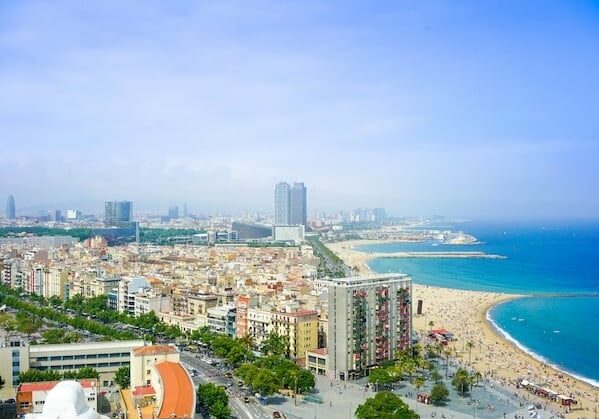
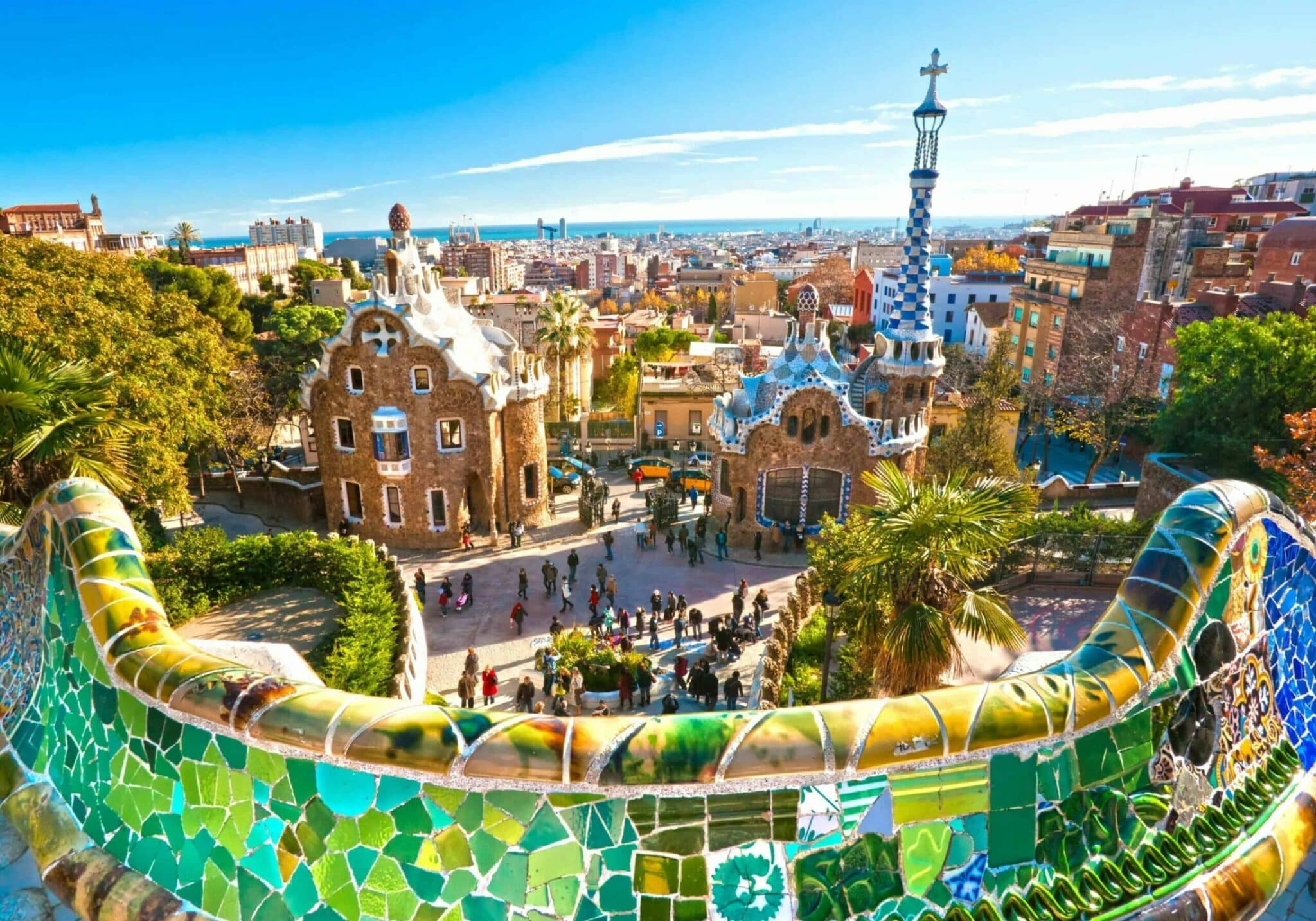


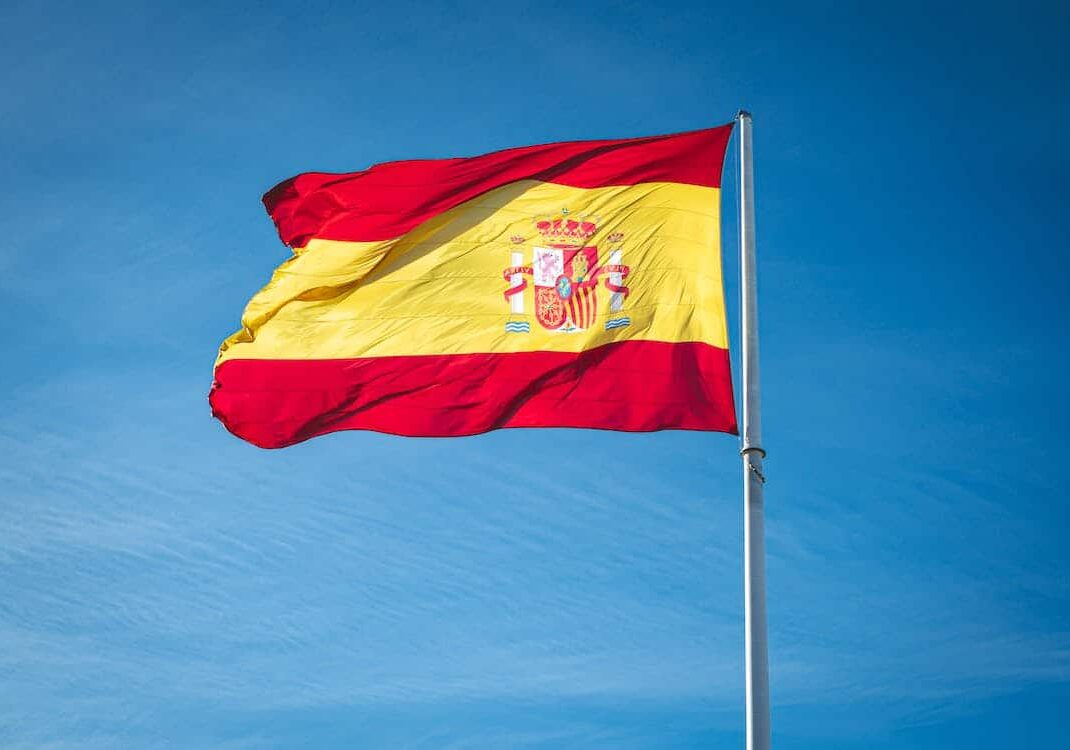






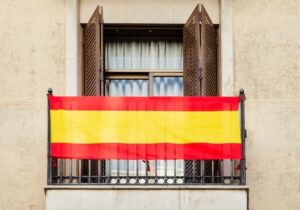

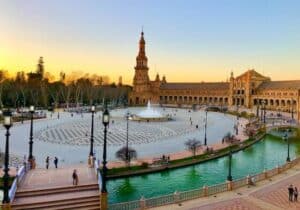

Frequently Asked Questions about Spanish Citizenship by Descent
How do I get Spanish citizenship by descent?
For those wondering how to get Spanish citizenship by descent, the first requirement is that you have at least one natural-born Spanish citizen parent or grandparent.
Should you fulfill these eligibility criteria, you must present official documents proving your Spanish heritage, which include:
- Your birth certificate
- Your Spanish parent’s or grandparent’s birth certificate, marriage/divorce certificate, or death certificate
Once these documents are ready, you can complete the official citizenship application form and submit it to the Spanish Consulate in your country of residency or a municipal Civil Registry office in Spain, alongside additional documents related to your specific situation.
How many generations qualify for Spanish citizenship by descent?
Descendants can claim Spanish citizenship up to the second degree. This includes Spanish nationals’ children and grandchildren.
Is it easy to get Spanish citizenship by descent?
The ease of acquiring Spanish citizenship by descent can vary depending on your specific circumstances, such as the availability of necessary official documentation and your connection to Spain.
Citizenship by descent is easier to obtain if one of your parents is a natural-born Spanish citizen.
Can my children become citizens of Spain as well?
If you are a Spanish citizen by birthright, your children are eligible for Spanish citizenship.
If you acquired Spanish citizenship by naturalization, your children will only be eligible for Spanish citizenship if born in Spain, or by naturalization, in case they live in Spain for 10 years or 2 years, in specific cases
Do I need to renounce my current citizenship to become a Spanish citizen by descent?
As Spain doesn’t allow dual citizenship, only specific nationalities can claim Spanish dual citizenship.
If you’re a citizen of a Latin American country, the Philippines, Andorra, Equatorial Guinea, Portugal, or France, you’re eligible to obtain Spanish citizenship and keep your original citizenship.
Nationals of other countries must renounce their current citizenship before obtaining the Spanish one.
Is there an age limit for applying for Spanish citizenship by descent?
There is no specified age limit to obtain Spanish citizenship by descent. Provided you can prove one of your parents or grandparents obtained Spanish citizenship by birthright, you can obtain citizenship through Spanish ancestry.
Can I apply for Spanish citizenship by descent if my Spanish ancestor is deceased?
You can still apply for Spanish citizenship by ancestry, even if your ancestor is deceased. The key factor in the application process is providing the necessary documentation that proves your Spanish lineage.
This typically includes birth certificates, marriage certificates, death certificates and other relevant records that establish the familial connection to a Spanish citizen.
What is the two-year citizenship program in Spain?
Naturalization in Spain requires ten years of residency; however, citizens of former Spanish colonies are eligible for Spanish citizenship under the two-year rule.
For example, if you are a citizen of Latin American countries, Andorra, the Philippines, Equatorial Guinea, Portugal or a person of Sephardic origin, you are eligible to obtain Spanish citizenship by naturalization in two years instead of ten.
How do I get Spain citizenship through grandparents?
To apply for Spanish citizenship through a grandparent, you need to have grandparents born in Spain or who was granted Spanish citizenship at birth.
The eligibility criteria require you to prove your lineage, just as you would through a Spanish mother or father.
Can you apply for Spanish citizenship through ancestry?
Yes, you can apply for Spanish citizenship by descent if you’re able to validate your claim to Spanish heritage, which can be either through your parents or grandparents.
How can I appeal a denied application for Spanish citizenship by descent?
To appeal a denied application for Spanish citizenship by descent, you should follow several steps. Carefully read the denial letter received from the Spanish authorities to understand the specific reasons why your application was denied. This letter will also indicate the deadline for filing an appeal.
It may be beneficial to consult with a lawyer who specializes in Spanish citizenship or immigration law. They can provide guidance specific to your situation and help you navigate the complexities of the legal process.
Gather all necessary documents and evidence that address the reasons for the denial. This may include additional proofs of your Spanish descent, corrections to any errors in your initial application, or new information that was not previously considered.
File the appeal within the timeframe specified in the denial letter. The appeal should be directed to the same authority that issued the denial, unless instructed otherwise. Make sure your appeal is thorough, addressing each point of contention with appropriate evidence and legal references.



